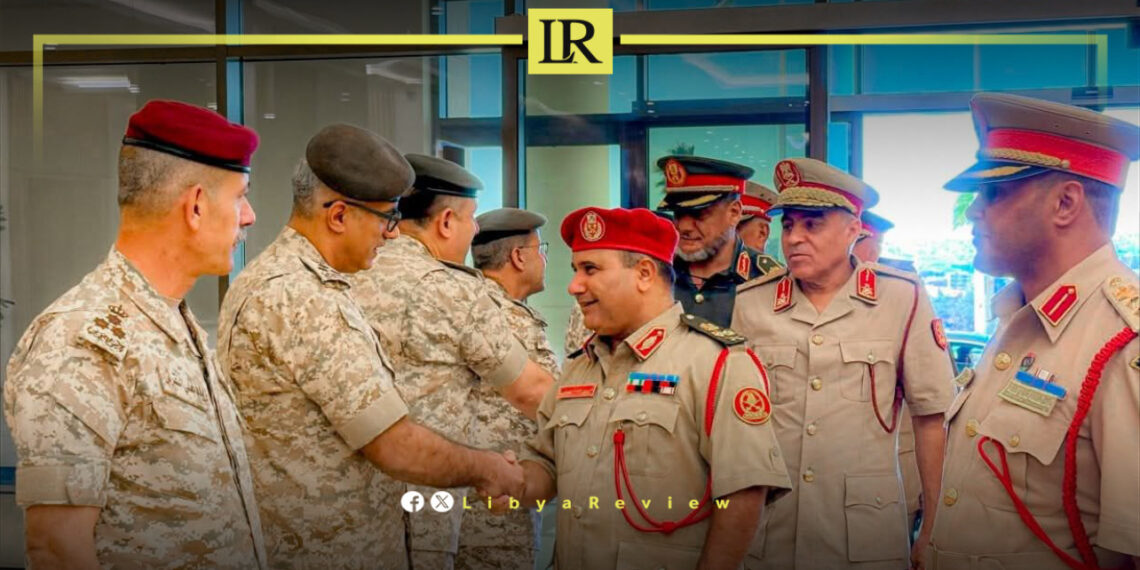Led by Lieutenant General Khairi Al-Tamimi, Secretary-General of the Libyan General Command of the Armed Forces, a high-ranking Libyan military delegation visited the Hashemite Kingdom of Jordan to strengthen military cooperation.
During the visit, Al-Tamimi met with Major General Yousef Ahmed Al-Hunaiti, Chairman of the Joint Chiefs of Staff of the Jordanian Armed Forces, in Amman. The meeting was attended by several officers and officials from both sides.
Talks focused on a range of topics of mutual interest, with an emphasis on enhancing military cooperation, particularly in training programs.
As part of the visit, Al-Tamimi also toured the Sheikh Mohammed bin Zayed Training City, where he was received by Brigadier General Abdulkarim Al-Subailah, Director of the Training City, along with senior Jordanian military officers.
He inspected the city’s facilities and educational centers, emphasizing the importance of military training in building capabilities and strengthening professionalism.
Al-Tamimi also met with Libyan trainees and officers enrolled in training programs, delivering a motivational speech in which he stressed the importance of discipline, commitment, and making the most of training opportunities to develop skills and competencies, in line with the General Command’s vision for building and qualifying military personnel.
Libya has been in chaos since a NATO-backed uprising toppled longtime leader Muammar Gaddafi in 2011. The county has for years been split between rival administrations.
Libya’s economy, heavily reliant on oil, has suffered due to the ongoing conflict. The instability has led to fluctuations in oil production and prices, impacting the global oil market and Libya’s economy.
The conflict has led to a significant humanitarian crisis in Libya, with thousands of people killed, and many more displaced. Migrants and refugees using Libya as a transit point to Europe have also faced dire conditions.
The planned elections for December 2021 were delayed due to disagreements over election laws and the eligibility of certain candidates. This delay has raised concerns about the feasibility of a peaceful political transition.
Despite the ceasefire, security remains a significant concern with sporadic fighting and the presence of mercenaries and foreign fighters. The unification of the military and the removal of foreign forces are crucial challenges.


